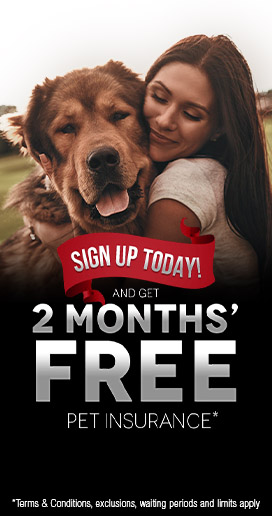
When Your Dog Eats Something He Shouldn’t
Understanding Foreign Body Ingestion in Pets
Dogs, and some cats, simply love to indulge in some strange and interesting tastes. In this article, Nadia Crighton from Pet Insurance Australia takes a look at foreign body ingestion that is causing some panic among pet owners.
The Unusual Objects Inside Our Pets
From underwear to corncobs, banana skins, and even needles, the objects many vets have removed from the inside of dogs, and more uncommonly cats, are incredible.
Expert Insights
Dr. Sarah Goldsmid, Specialist Small Animal Surgeon and Director of The Animal Referral Hospital (ARH), has first-hand experience in dealing with the problems associated with foreign body ingestion.
“ARH has six referral and emergency vet hospitals around Australia,” Dr. Goldsmid says. “Each one of our hospitals would be presented with several foreign body ingestions every week – mainly dogs, but occasionally cats. Some foreign bodies are vomited up, some pass through the gut, some can be removed using an endoscope, and some will need a surgical procedure to remove them.”
Common Culprits
Some of the Main Culprits for foreign body ingestion in pets include:
- Cooked Bones
- Corn Cobs
- Broken Toys
- Kids Toys
- Skewers
- Hooks, Baits & Needles
- Stones
- Socks & Knickers
Prevention and Safety Tips
It’s impossible to prevent exposure to all the possible foreign bodies that can be ingested and cause your pet harm. However, some basic steps can help keep your pet safe.
“Try to prevent foreign body ingestion by limiting access,” Dr. Goldsmid says. “You can never eliminate the risk of foreign body ingestion – but pay attention to your pet and any clinical signs they might demonstrate, get pet insurance before a problem occurs, seek veterinary attention if you are at all concerned.”
Other Preventive Measures Include:
- Keeping pets away from fishing tackle, hooks, and baits
- Safely disposing of skewers and meat nets
- Using dog-proof bins
- Covering the compost heap
- Keeping sewing kits and wool out of reach of cats
- Avoiding feeding cooked bones
- Removing broken pet toys
- Providing pet-sized appropriate toys (in other words, ditch the puppy/kitten toys when the pup/cat grows up)
Recognizing Symptoms
If you suspect your dog or cat has eaten something they shouldn’t have, it is imperative you seek veterinary help immediately. Some pets will not show any signs of problems; however, it is best to get the all-clear to ensure your pet is 100% okay.
“You should always seek veterinary advice if you know your pet has ingested something it shouldn’t,” Dr. Goldsmid advises. “While surgery may not always be required, it is important to assess the pet for potential problems.”
Dr. Goldsmid also warns that ingesting things such as string or dental floss can come with additional problems.
“Sometimes a string foreign body (like cotton, fishing line, pantyhose, elastic) can catch around the tongue and cause wounds in the mouth, but then also cut through the intestine and be a life-threatening problem.”
It is also good to note that some foreign bodies show up on X-rays or ultrasound, while others do not. This is why seeking help quickly is so important for the health of your pet.
“Your vet will need to decide if treatment is necessary depending on what item was ingested, clinical signs of your pet, and risk if the foreign body is left. Any pet can eat anything, and it is worth having pet insurance in place in case of an emergency.”
Symptoms to Watch For
Symptoms of foreign body ingestion in pets include:
- Trusting your intuition; if you suspect, get help!
- Vomiting
- Retching
- Loss of appetite
- Abdominal pain
- Unusually quiet
- Excessive salivating or drooling
“Sometimes the pet does not immediately exhibit any signs, but owners might witness their pet swallowing something (like a large bone or knife) or they witnessed the cat or dog playing with a needle and thread or a fish hook on a line and now can’t find it.”
Dr. Goldsmid’s Most Bizarre Case
“Over 30 years of being a vet, I have seen many weird and wonderful things animals have swallowed. At ARH Homebush, we were presented with a young staffy puppy that had swallowed a large knife, and one of our medical specialists removed the large knife using an endoscope.”
Better safe than sorry. Immediately seek veterinary help if you suspect your pet ingested something hazardous.
Image Courtesy of Animal Referral Hospital
Nadia Crighton is a renowned and accomplished professional in the fields of Journalism, Public Relations, and Writing, with an extensive career spanning over 25 years, 20 of which have been dedicated to promoting the health and well-being of pets.
Get the latest Pet Insider Tips & News
We offer award-winning* pet insurance policies to protect your furry friend’s health and wellbeing. Get a quote today and give your pets the care they deserve.
Archives
Categories
- Cat Care (65)
- Cats (2)
- Dog Care (129)
- Guides (29)
- Health and Nutrition (201)
- Lifestyle and Activities (221)
- Media Release (27)
- Pet Care (251)
- Rescue Dogs (1)


